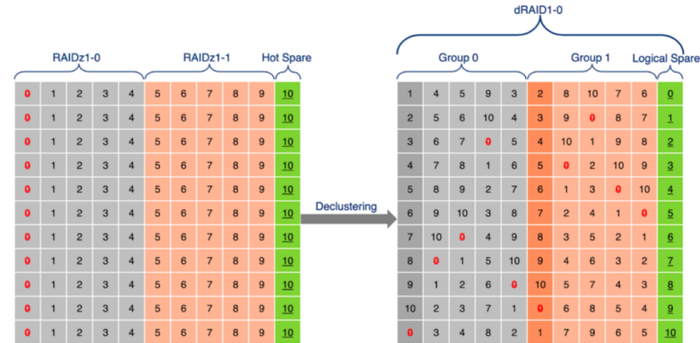Published Project Release OpenZFS 2.1 , developing the implementation of the ZFS file system for Linux and FreeBSD. The project has gained fame as “ZFS on Linux” and previously limited to the development of the Linux kernel module, but after transferring FreeBSD support was recognized as the main implementation of OpenZFS and was delivered from the mention of Linux in the title.
OpenZFS work is checked with Linux cores 3.10 to 5.13 And all the FreeBSD branches, starting with 12.2-release. The code extends under a free CDDL license. OpenZFS is already used in FreeBSD and is part of Debian distributions, Ubuntu, Gentoo, Sabayon Linux and Alt Linux. Packages with a new version in the near future will be prepared for the main Linux distributions, including Debian, Ubuntu, Fedora, Rhel / CentOS.
OpenZFS provides the implementation of ZFS components associated with both the operation of the file system and the functioning of the volume manager. In particular, components are implemented: SPA (Storage Pool Allocator), DMU (Data Management Unit), ZVOL (ZFS Emulated Volume) and ZPL (ZFS POSIX LAYER). Additionally, the project is provided with the possibility of using ZFS as a backend for the LUSTRE cluster file system. The project’s operations are based on the original ZFS code imported from the OpenSolaris project and enhanced improvements and corrections from the ILLUMOS community. The project is developing with the participation of the staff of the Livemorm National Laboratory under the Contract with the US Department of Energy.
code applies under a free CDDL license, which is incompatible with GPLv2, which does not allow to achieve OpenZFS integration into the main branch of the Linux kernel, since the code mixing under licenses GPLV2 and CDDL is unacceptable. To bypass this licensed incompatibility, it was decided to distribute the product entirely under the CDDL license as a separately loaded module, which comes separately from the kernel. The stability of the OpenZFS code base is estimated as comparable to other FS for Linux.
Main changes:
- added support technology Draid (Distributed Spare RAID), which represents RAIDZ option with integrated distributed hardware processing for hot recovery (Hot Spare). Draid inherited all the advantages of RAIDZ, but allowed to achieve a significant increase in the rebeling speed of the repository (resilvering) and redundancy in the array. The DRAID virtual storage is generated from several internal RAIDZ groups, each of which contains storage devices and storage devices for storing blocks. These groups are distributed across all drives to optimally use the available drive bandwidth. Instead of a separate disk for hot recovery in DRAID, the concept of logical distribution of blocks for hot recovery on all discs in the array is used.

